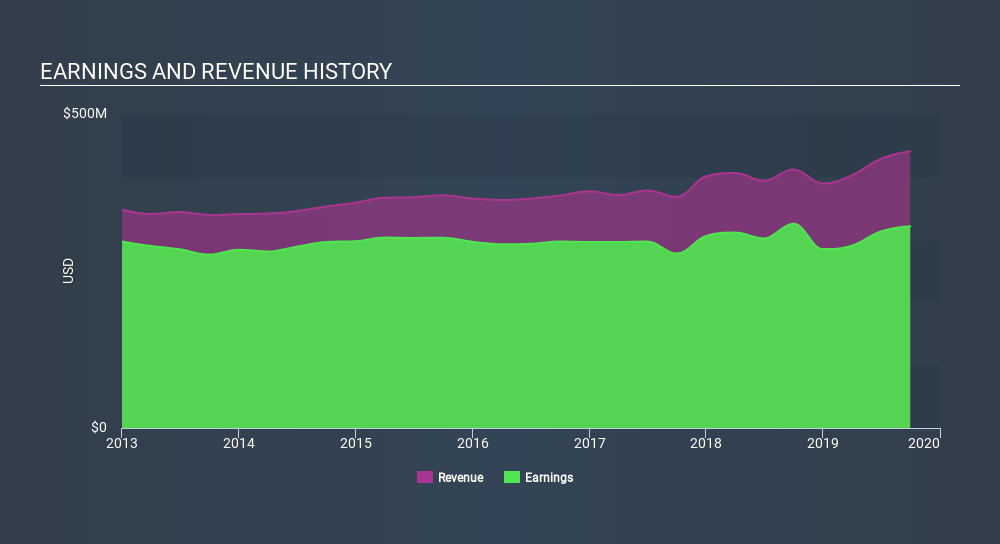- United States
- /
- Mortgage REITs
- /
- NYSE:MFA
Investors Who Bought MFA Financial (NYSE:MFA) Shares A Year Ago Are Now Up 18%

On average, over time, stock markets tend to rise higher. This makes investing attractive. But if you choose that path, you're going to buy some stocks that fall short of the market. Unfortunately for shareholders, while the MFA Financial, Inc. (NYSE:MFA) share price is up 18% in the last year, that falls short of the market return. Unfortunately the longer term returns are not so good, with the stock falling 1.0% in the last three years.
See our latest analysis for MFA Financial
To paraphrase Benjamin Graham: Over the short term the market is a voting machine, but over the long term it's a weighing machine. One way to examine how market sentiment has changed over time is to look at the interaction between a company's share price and its earnings per share (EPS).
During the last year, MFA Financial actually saw its earnings per share drop 11%.
So we don't think that investors are paying too much attention to EPS. Therefore, it seems likely that investors are putting more weight on metrics other than EPS, at the moment.
We haven't seen MFA Financial increase dividend payments yet, so the yield probably hasn't helped drive the share higher. Rather, we'd posit that the revenue increase of 7.1% might be more meaningful. Revenue growth often does precede earnings growth, so some investors might be willing to forgo profits today because they have their eyes fixed firmly on the future.
The company's revenue and earnings (over time) are depicted in the image below (click to see the exact numbers).

Balance sheet strength is crucial. It might be well worthwhile taking a look at our free report on how its financial position has changed over time.
What About Dividends?
It is important to consider the total shareholder return, as well as the share price return, for any given stock. Whereas the share price return only reflects the change in the share price, the TSR includes the value of dividends (assuming they were reinvested) and the benefit of any discounted capital raising or spin-off. So for companies that pay a generous dividend, the TSR is often a lot higher than the share price return. As it happens, MFA Financial's TSR for the last year was 31%, which exceeds the share price return mentioned earlier. This is largely a result of its dividend payments!
A Different Perspective
MFA Financial's TSR for the year was broadly in line with the market average, at 31%. That gain looks pretty satisfying, and it is even better than the five-year TSR of 10.0% per year. Even if the share price growth slows down from here, there's a good chance that this is business worth watching in the long term. While it is well worth considering the different impacts that market conditions can have on the share price, there are other factors that are even more important. For example, we've discovered 2 warning signs for MFA Financial (of which 1 is major) which any shareholder or potential investor should be aware of.
For those who like to find winning investments this free list of growing companies with recent insider purchasing, could be just the ticket.
Please note, the market returns quoted in this article reflect the market weighted average returns of stocks that currently trade on US exchanges.
If you spot an error that warrants correction, please contact the editor at editorial-team@simplywallst.com. This article by Simply Wall St is general in nature. It does not constitute a recommendation to buy or sell any stock, and does not take account of your objectives, or your financial situation. Simply Wall St has no position in the stocks mentioned.
We aim to bring you long-term focused research analysis driven by fundamental data. Note that our analysis may not factor in the latest price-sensitive company announcements or qualitative material. Thank you for reading.
About NYSE:MFA
MFA Financial
Operates as a real estate investment trust in the United States.
Fair value with acceptable track record.
Similar Companies
Market Insights
Community Narratives





